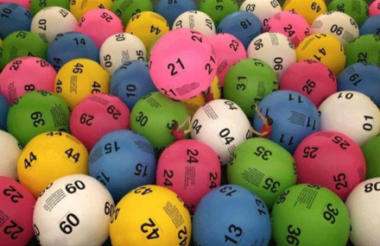Fundraising Magazine's Fundraising First Thing seminar last week looked at the benefits and challenges of lotteries as an income stream. Stephen Cotterill considers some of the themes from the session.
Often seen as the ugly stepsister of fundraising, lotteries have a bad name. The idea that people want something in return for giving strikes at the very core of principled social engagement and the concept of altruism. But the truth is that it works with a certain segment of supporters.
"Lottery players may identify themselves as donors to your cause, but if you just went and asked them for money, they most likely wouldn't give you any," said David Griffiths, chief executive of the Hospice Lottery Partnership, speaking at Fundraising Magazine's Fundraising First Thing breakfast seminar last week. "They are driven by a variable mix of generosity and the desire to benefit financially."
This is particularly true for the bigger national lotteries. "The smaller you are and closer to your local community, the more altruism you are likely to get," he added. "A strong regional charity with close local ties, for example, may expect to tap five per cent of the catchment area."
For organisations such as these and ones where the cause is less appealing, lotteries can significantly bolster income. "I cannot stress to you enough, how important our weekly lottery is to our income," said Pauline McCulloch, supporter acquisition manager at Diabetes UK, which is on track to record £1.8m income through its social lottery this year. "People know about our cause, but don't often think of it as one that needs funding. We don't have the 'sponsor a kitten' type of appeal."
Lotteries may also help you tap a new donor market, one that would probably never have given to your cause through any other type of mechanism. "Lotteries appeal directly to Middle Britain," says Griffiths. "The lower middle and white working classes. It could bring you in a whole new type of supporter."
Numbers game
So, if you are thinking about dipping a toe in the lottery pool, said Griffiths, the first thing you have to consider is the numbers game. "From day one, you have to give 20 per cent of all income to the cause," he said. "This, straight off the bat, can be a challenge for small charities. And you are also likely to get 50 per cent attrition in the first year. Having said that, the ones who stay with you beyond that first twelve-month period, will on average continue to play for the next three-and-a-half years."
At Diabetes UK, the number of players has increased from 12,000 in 2011 to over 20,000 this year. McCulloch explained that there are some key strategies to that can help charities achieve that level of success:
- Start from a robust base. "It is best to market directly to your core supporters at the beginning," she said. "That way you can build on that base."
- Engage new supporters, and use a mix of marketing channels. "Don't be too reliant on one channel over another," she said. "Finding the need to diversify the donor-base from a face-to-face recruitment strategy, we had significant success with DRTV campaigns and we are rolling out a fourth initiative over the Christmas period."
- Don't just drive growth, make sure you have a good supporter journey in place. This is something Griffiths also advocated. "Engage with lottery players as you would with regular donors," he suggested. "Send them newsletters, updates on your work with beneficiaries. This will keep them engaged for longer." Diabetes UK has started sending out a welcome pack to new players to try to improve retention.
- With all these things: test, learn, repeat.
Playing by the rules
Lottery cash is unrestricted of course, which is the Holy Grail for fundraisers. But it's also quite heavily regulated.
"Our players have generated £154m for good causes to date," says head of communications at the People's Postcode Lottery Rachel Ruxton, who also spoke at the event. "That could be significantly more with changes to regulations." At present, in a single large society or local authority lottery the maximum value of tickets that can be sold is £4m. The maximum aggregate value of lottery tickets that can be sold in any calendar year is £10m.
"We have a £38.4m gap between applications from charities for funding and the grants that we can deliver," said Ruxton. "We need to make it simpler, more transparent and change limits so that way we will be able to raise more for good causes."
Other regulatory constraints around data security and contact preferences can also be challenging, especially as regards the General Data Protection Regulation which is due to come in 2018, according to Griffiths. "These regulations are going to be quite tough to deal with, so you have be prepared ahead of their implementation."
But despite all this, McCulloch is certain of the benefits of lotteries. "If asked whether society lotteries are worth the effort, I would say 'you bet they are'."
Related articles











